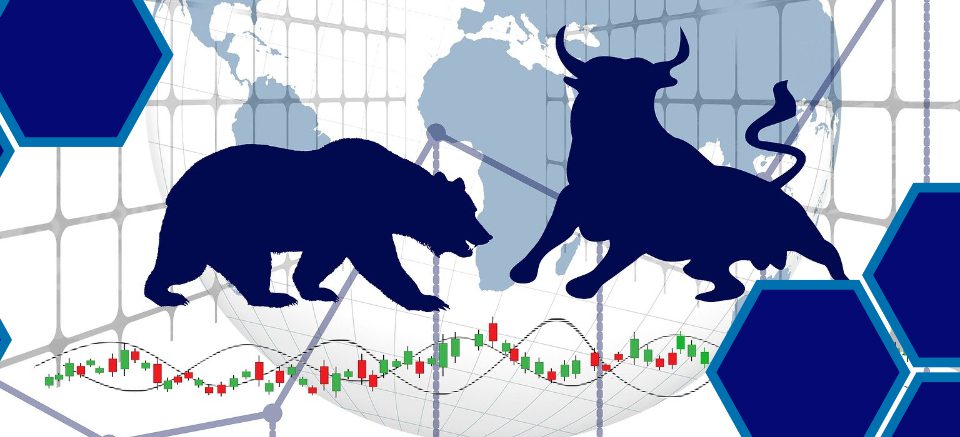- Contact us
- +599-9 461 4545
- info@dcsx.cw
Why Securities Market Development Takes Time

The Stock Market and Economic Growth
April 30, 2020
Investor Protection
May 8, 2020Why Securities Market Development Takes Time

Publication 3. 2020
In the previous publication “ The Stock Market and Economic Growth” we discussed the Stock Market in relation to the Economic Growth of a country. The Stock Market forms part of the Securities Market. In many countries, it is very common to start a securities market during the initial stages of financial market development. This is known as a “build-and-they-will-come” approach. However, there are instances where countries are unable to successfully build the structure for a securities market. Others who were able to achieve it, however, often had to wait for it to effectively develop and grow. One of the primary reasons is that a lot of business firms do not actively participate in the securities market. The actual number of private businesses is likely to be higher than the number of companies publicly listed on an exchange in the securities market. This is a fact in most countries with a capitalistic structure and is one of the critical factors that Government and other policymakers should focus on.
In general, it is well known that a successful development of a securities market takes time. The question is: why? What should countries do to successfully develop their securities market? How does a nation grow its securities market? Which factors determine success and failure? Why do some countries succeed while others do not? In this publication we will try to address these questions.
Let us start with three main explanations for why a country’s securities market often only grows gradually:
- It is common for companies in developing countries to fund/finance themselves through the profits they earn by conducting business, therefore there is no demand for an alternative way of raising capital;
- The banks may be functioning at an optimum level and as such at first sight, by providing sufficient external funding to a company. If so, this will lead to a decrease in the firms’ dependability on a securities exchange, as the firm will often be able to secure the financing via these external mediums;
- The cost of financing plays an essential role. Financing through the securities market has a lot of pre-requisites and can become prohibitively costly for a business. Additionally, acquiring funding thru the securities market creates additional operational costs because of the inherent requirement to adhere to regulations for certain corporate governance.
What do countries need to successfully develop a Securities Market?
Macroeconomic conditions and other economic structural “influences” have been described as the most important driving forces for the capital market, and the thereto belonging securities market, growth. Macroeconomic considerations such as wages, general investment climate, employment, economic growth, and inflation are significant determinants of the growth of the capital and securities markets. Countries with higher inflationary rates continue to have lower, less competitive, and less profitable capital and securities markets.
On a more micro level, institutional qualities, such as sound legal structures, accounting practices, corporate governance, accountability, and adequate consumer legislation, improve the trust of an investor and can significantly impact the growth of capital and securities markets.
Securities Market Development
How does a nation grow its securities market? In addition to macroeconomic stability and regulatory structure, the growth of capital markets involves policies to raise the number of business listings (supply-side) and investment (demand side).
SUPPLY SIDE: How can a country increase the number of company listings?
- IPO’s of reliable state-owned companies can help in market growth.
- Introduction of incentives for private companies on turning public.
- Private equity and venture capital investors can “release” and in that way assist in starting to increase the number of companies listed on the exchange.
- The introduction of Class B-shares in the listing process can lead to an increase in listings. Class B shares are a classification of common stock that can have more or fewer voting rights than Class A shares. Class A shares are used to provide a company’s management team with voting power in a volatile public market.
DEMAND SIDE: What factors can help increase the demand for stock investment?
Governments can introduce long-term investment plan benefits by providing financial incentives to make possible a long-term investment non-saving plan for investors. The plans should include optimum usage of instruments, clearly identified investments, automatic enrollments, and in general, be part of either a retirement plan or an economic special purpose vehicle.
The government can boost the performance and cost-effectiveness of long-term investment schemes by promoting competition amongst financial institutions. Additionally, streamlining the legislation to enable institutional and even international investors to access the domestic market, can lead to an increase in securities demand.
Fund managers, including mutual funds and insurance firms, may play critical roles in the growth of the securities market. They have a long-term outlook and hence trading plans for long-term investments in the securities markets.
They can increase the standards of corporate governance, accounting practices, and the overall infrastructure of the capital market.
Additionally, swift regulation and oversight policies to protect investors’ illegal practices (including a well running and professional securities exchange) will help increase the morale and confidence of the investor. Similarly, maintaining transparency between all parties is one of the essential components.
Countries can join other national capital/securities exchanges to take advantage of a mass of issuances and investors. An example of this is the correlation between the mainland market in China and the Hong Kong Stock Exchange.
These advantages include cost-efficiency, competition, market finds and depth, experience, and risk reduction synergy. Regional convergence may occur in different ways. However, it requires some essential pre-requisites in place. It includes creating harmony between exchange regulations and accounting principles, free trade policy, development of electronic trading networks, and convertibility of currencies.
Which factors determine Success and Failure?
Many developed countries have formed a securities market to attract investments from local and international investors. Over the years, countries that have a well-functioning securities market have often been able to achieve rapid growth levels. However, extensive research concludes that there have also been variations in the outcome. Developing countries ended up with stagnant securities markets with few listed firms, a small base of investors, and low-trading operations.
While some countries failed, other countries have been prosperous in establishing a securities market. For example, Vietnam has seen significant securities market change and growth. By the time the stock exchange was formed in 2000, there were only two listed firms. Seventeen years on, Vietnam has 344 listings, and a market capitalization of more than $48 billion.
Final Thoughts
Since the start of our operations in 2013 the Dutch Caribbean Securities Exchange, “DCSX”, has encountered many challenges like many other exchanges in the world, especially those in developed countries. In practice, we see that yes, government support by initiating the Bond Market with Government Bonds gave us a head start. In the “supply-side” of the securities market we see an interesting appetite from the international market which is why most of the listed entities on our platform are internationally based.
A combination of a good legal framework, being partner in the Dutch Kingdom, having ample international financial services experience and providing those services at a competitive cost level, have led to this international interest for our Exchange. But we still believe that the possibility of raising capital locally through the exchange for the Government, Government corporations that deliver essential services to the public, and provide work for the locals should be discussed.
Not only raising capital from institutional investors but the possibility to give the public a fair share to become shareholders of these Government companies. Imagine a scenario where the employees and their families all have at least some securities in/-of the Government company they work for. This will make them “co-owners”. And that may lead to improved work ethics, which on its turn benefits the company and thus themselves too. It will create transparency as it also forces management to provide periodical correct financial reporting.
Successful companies that wish to fund their own projects with their earnings will always exist and have the right to do so. At the same time there are opportunities for those companies that are struggling to obtain financing through traditional methods. Here is where they must “grab” the possibility to raise capital through our Exchange, an alternative way of financing for Startups and SMEs. We have already mentioned the advantage of offering very affordable fees.
In recent years, we have invested in a modern trading platform which resulted in more interest from the international market and a few domestic-based players. But we are not there yet. No one better than us understands that the development of a securities market takes time. This is why we continue delivering our message of providing investment opportunities to investors and offer a capital-raising platform for mature SMEs and even start-ups to thrive. We won’t stay still and will continue looking further for the continuous development of the Exchange in its distinguished approach to target the matured start-ups and SME sector.
Sources:
Albuquerque de Sousa, J., T. Beck, PAG van Bergeijk, and MA van Dijk. 2016. “Nascent markets: Understanding the success and failure of new stock markets” CEPR Discussion Paper
Laeven, Luc, and Fabian Valencia, 2012. “Systemic Banking Crisis Database: An Update,” I.M.F. Working paper. WP/12/163. Retrieved from https://www.imf.org/external/pubs/ft/wp/2012/wp12163.pdf
Sahay, R. et al., 2015. “Rethinking Financial Deepening; Stability and Growth in Emerging Markets.” IMF Staff Discussion Notes 15/08, International Monetary Fund. Retrieved from https://www.imf.org/external/pubs/ft/sdn/2015/sdn1508.pdf
World Bank. 2020. World Development Indicators database: Listed domestic companies. Retrieved April 17, 2020, from https://data.worldbank.org/indicator/CM.MKT.LDOM.NO
World Bank. 2020. World Development Indicators database: Market capitalization of listed domestic companies. Retrieved April 17, 2020, from. https://data.worldbank.org/indicator/CM.MKT.LCAP.CD
This publication is presented to you by the Dutch Caribbean Securities Exchange
Written by N. Martina. Edited by D. Intriago and R. Römer.
Download the PDF version of this article: EN




